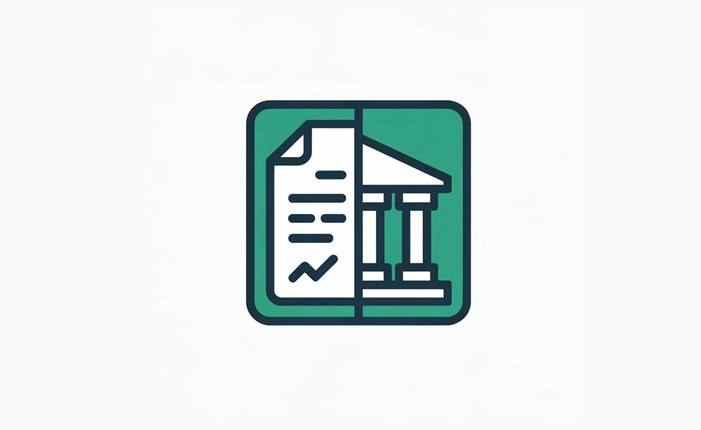Looking at a home but can’t (or don’t want to) go the traditional bank route? Land contracts also called contracts for deed are back in the conversation. But what will you actually pay each month compared with a normal mortgage? Here’s a clear, numbers-first breakdown with real-world examples, simple tables, and the straight talk you’d want from a neighbor who’s been there.

- Mortgage: Bank or credit union lends you money, you get title at closing, and you pay them back over 15–30 years. If you stop paying, they foreclose (a formal legal process).
- Land contract (contract for deed): The seller finances you directly. You make payments to the seller. You get “equitable title” now, but the seller keeps legal title until you finish paying (or refinance). If you default, the seller may be able to cancel the contract faster than a bank forecloses—rules vary by state.
Why this matters for your wallet
- Rate and structure: Land contracts often run 1–3 percentage points higher than market mortgage rates and commonly include a short-term balloon (e.g., due in 3–5 years).
- PMI: Traditional mortgages with <20% down usually require mortgage insurance (PMI). Land contracts typically do not.
- Closing costs: Mortgage closings are heavier (2–4% of price). Land contracts often close with attorneys and low fees.
Monthly payment comparison
Assume a 300,000 home, 10300,000 home,1030,000), $270,000 financed.
| Option | Rate | Amortization | Balloon | Monthly P&I | PMI | Monthly Total (excl. taxes/insurance) |
|---|---|---|---|---|---|---|
| 30-yr mortgage | 7.00% | 30 years | No | $1,796 | $135 | $1,931 |
| Land contract | 9.00% | 30 years | Due at year 5 | $2,172 | $0 | $2,172 |
| Land contract (interest-only) | 9.00% | Interest-only | Due at year 5 | $2,025 | $0 | $2,025 |
Notes:
- Taxes and homeowners insurance are extra in every scenario (they vary by location).
- PMI estimate assumes ~0.6% annually on the loan balance; your rate may differ.
Five-year look- What do you actually pay and build?
| Option | Total Paid in 60 Months | Principal Paid Down | Interest + PMI Paid | Balance/Payoff at Month 60 |
|---|---|---|---|---|
| 30-yr mortgage @ 7% | $115,860 | ~$15,821 | ~$100,039 | ~$254,179 |
| Land contract @ 9% (amortizing) | $130,345 | ~$11,106 | ~$119,239 | ~$258,894 |
| Land contract @ 9% (interest-only) | $121,500 | $0 | $121,500 | $270,000 |
What jumps out:
- The mortgage builds more equity in 5 years and costs less in interest/PMI.
- The amortizing land contract costs more monthly and builds less equity.
- Interest-only looks “affordable” month-to-month but leaves you with a full payoff (balloon) staring you down.
Cash to close snapshot
| Cost Bucket | Mortgage | Land Contract |
|---|---|---|
| Down payment (10%) | $30,000 | $30,000 |
| Typical closing costs | ~$9,000 (3% estimate) | ~$2,000 (attorney, recording) |
| Prepaids/escrows | 2,000–2,000–4,000 (varies) | Often lower/minimal |
| Approx. cash to close | ~41,000–41,000–43,000 | ~$32,000 |
Reality check: Many sellers ask for 10–20% down on land contracts. If the seller wants 15% down, your entry cash rises to $45,000 (plus fees).
The guts of the payment math (keep this handy)
- Mortgage payment formula (principal and interest): M = P × r × (1+r)^n / [(1+r)^n − 1]
- P = loan amount, r = monthly rate (APR/12), n = total payments.
Compare options on:
- Monthly total (P&I + PMI if applicable)
- Cash to close
- Principal reduction after 3–5 years
- Balloon due (land contracts)
- Legal protections and default remedies
Pros and cons at a glance (Land Contract vs. Mortgage)
Mortgage (bank/credit union)
Pros:
- Typically the lowest monthly payment
- Strong consumer protections; clear path if hardship hits
- You get title at closing; easier to insure/borrow against
- Potentially better long-run equity build
Cons:
- Tougher underwriting; more documentation
- Higher closing costs
- PMI if you put less than 20% down
Land contract (seller financing)
Pros:
- Flexible underwriting; faster timeline
- Lower closing costs
- No PMI
Cons:
- Often higher interest rate and a balloon in 3–5 years
- Title stays with seller until paid off—more risk if things go sideways
- If seller has a mortgage, a due-on-sale clause can be triggered
- Default remedies may be faster than a bank foreclosure depending on state law

Important legal and risk notes (read this twice)
Title and recording:
- Always run a title search and record the land contract (or a memorandum) so your interest is public record.
- If there’s an existing seller mortgage, you need written permission from the lender or a structure that avoids triggering the due-on-sale clause. Wraparounds are risky.
Defaults and cancellations:
- Some states allow quick cancellation/forfeiture for land contracts; others require formal foreclosure after a certain equity threshold or time. Know your state’s rules (e.g., timelines can be 30–90 days in some places; longer elsewhere).
Compliance:
- Federal and state rules may require the seller to use a licensed mortgage loan originator and document ability-to-repay if the buyer will live in the property. Don’t skip this—noncompliant deals can be unenforceable or costly.
Taxes and insurance:
- You’ll typically pay property taxes and homeowners insurance. Consider a third-party servicer to handle escrows so payments don’t get “lost.”
Paper trail:
- Use an attorney, get amortization schedules in writing, and set up third‑party servicing so every payment is credited properly and you get annual 1098 interest statements.
This is informational, not legal or tax advice. Talk to a real estate attorney and tax pro before you sign.
When a land contract can make sense
- You need time to repair credit or document income (self-employed, recent life changes).
- You have a solid down payment but want to move quickly without bank underwriting.
- The seller offers a below-market rate or agrees to a long amortization without a short balloon.
- You have a credible refinance plan within the balloon window—and you’re comfortable with the risk if rates or lending standards tighten.
When a mortgage usually wins
- You qualify for a competitive market rate with reasonable closing costs.
- You prefer predictable payments, clear title, and stronger consumer protections.
- You want maximum equity build per dollar paid and no balloon surprises.
Red flags and negotiation tips
Red flags
- Short balloon (≤36 months) with a high rate and no clear refi path
- Seller won’t allow recording or provide title evidence
- Existing liens, unpaid taxes, or a wraparound without lender consent
- “Interest-only forever” with sky-high late fees and vague default clauses
Negotiation tips
- Rate first, then balloon: Push for a lower rate and a longer amortization before you talk down payment tweaks.
- Cure period and notices: Get a fair late-payment grace period and a written cure process.
- Third-party servicing: Insist on it. It protects both sides and keeps perfect records.
- Conversion option: Ask for a clause that lets you refinance or pay off early with no prepayment penalty.
If your main goal is the lowest monthly payment with steady equity build, a traditional mortgage typically wins—even after adding PMI. If you need flexibility and speed, a land contract can be a bridge—just price in the higher rate and balloon risk, and lock down protections in writing. Don’t let a lower “cash to close” blind you to a higher long-run cost. Run the numbers over 5 years and make sure you can handle the balloon. if you need calculate your loan amount then try this calculator for contract calculator.

